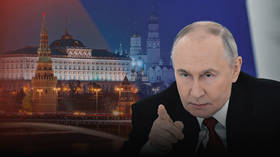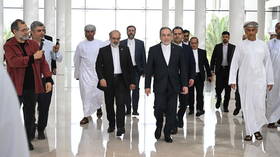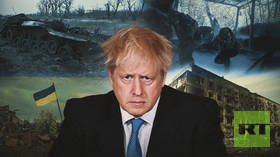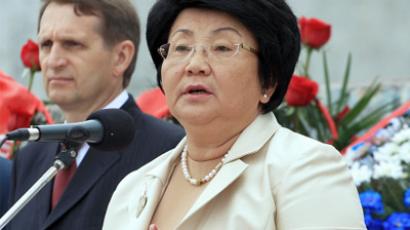Kyrgyz Islam: Embracing the future or breeding radicals?
The Central Asian republic of Kyrgyzstan has its own unique brand of Islam. Now, it has opened its doors to more fundamentalist strains of the religion. But will it help defuse social tensions, or lead to radicalization and the erosion of freedoms?
The spectacle of tens of thousands of Kyrgyz men praying in the capital’s central square, just underneath the Vladimir Lenin monument, says much about Kyrgyzstan. Even in its heyday, Communist ideology was never able to mobilize as many people as Islam does nowadays.But the unity of Muslims at prayer masks the vast differences in theology and lifestyle that exist among various branches of Islam in Kyrgyzstan. Over the past decade, the country has become a testing ground for Islamic missionaries of all kinds. Some of them have less in common with each other than they do with Jews or Christians. Kyrgyz people converted to Islam in the 17th century but they were never over-zealous about their faith. Mixed with shamanism and nomadic customs, the Kyrgyz version of Islam has long been more of a moral code than a religious doctrine. It has helped shape a society where women are just as active and ambitious as men, and where religiosity went hand in hand with a good education. Now, though, that is starting to change.“After the collapse of the Soviet Union, Kyrgyzstan has seen a very fast growth of Islam. Some of it is domestically driven – poverty, poor education, corruption, mistrust of authorities – all of that is prodding people toward the religion,” Kadyr Malikov, a Kyrgyz expert in religious studies told RT. “But much of it is also driven from abroad. Countries like Pakistan, Saudi Arabia and Kuwait are very generous when it comes to building mosques here.”Islam is on the rise across all of Central Asia, but only in Kyrgyzstan have the authorities adopted an open door policy. Take the Tabligh Jamaat sect. Its members have featured in a string of terrorism investigations, and, as a result, the group was labeled extremist by many European governments. In Kyrgyzstan, their community is growing fast.“We teach people how to find happiness in Allah, how to build your life in accordance with his wishes. And by teaching others, we learn ourselves,” says Khanybek Masyrov, a member of Tabligh Jamaat in Kyrgyzstan.While gender separation is emerging as a new feature of Kyrgyz public life, women are not excluded or marginalized – indeed, they are at the forefront of the Islamic resurgence. RT visited an Islamic academy where more than half the students are female, and their number has tripled in the past few years.“When they graduate, they'll get a diploma in Arabic studies and Sharia law. There is a lot of interest in these areas and, if they decide to work, it shouldn't be difficult finding a job,” says Sanaubar Kendzhaeva, a teacher of Arabic language.The resurgence of Islam in forms traditionally alien to Kyrgyz society has many opponents. Some fear that Saudi or Pakistani versions of Islam may corrupt the country's traditional values.“When the first Islamic missionaries arrived here three centuries ago, they were respectful of our customs. That's why Islam in Kyrgyzstan has been very much integrated with our indigenous culture… But the version of Islam that's being pushed on us nowadays, with hijabs and restrictions, is not only foreign to us, it's aggressive,” believes Chinara Seydakhmatova, who works as a designer of traditional Kyrgyz costumes.The country's authorities are not oblivious to the rising tide of Islamization and, some suggest, are even trying to harness it. Kyrgyzstan's top officials are frequently to be seen praying alongside the crowds. They claim full religious freedom is the best strategy against radicalization. “The results of the Arab Spring have shown that secular governments are cracking under the pressure of political Islam. Muslims are an enormous human resource. The one who knows how to manage this force will rule the streets,” Kadyr Malikov believes. For Kyrgyzstan, which has seen two revolutions in five years, there are few things more pressing than finding a formula to prevent all hell breaking loose again – even if that does mean embracing a fundamentalist strain of the Muslim faith.













